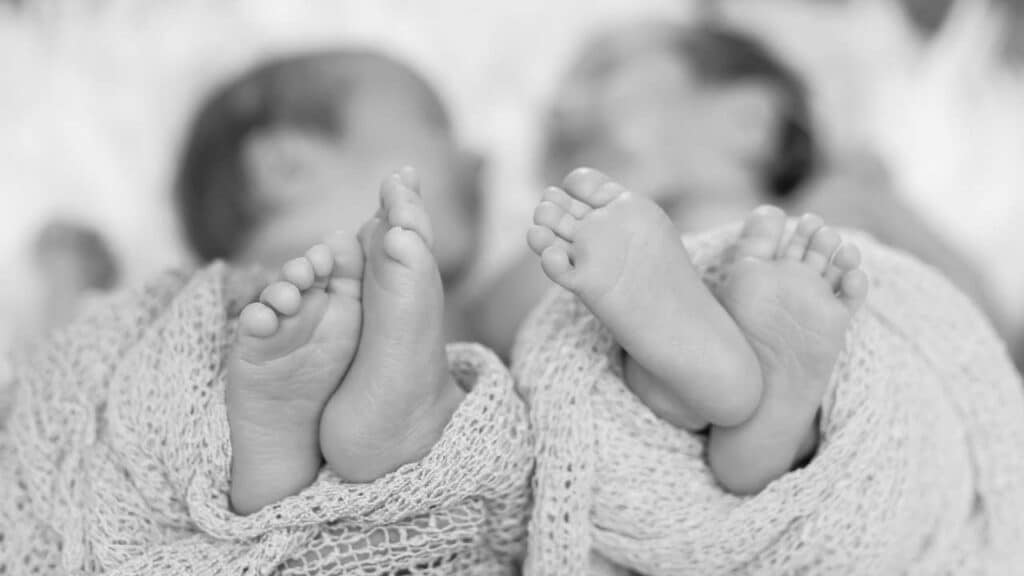Twins born to different fathers are a rare phenomenon known as heteropaternal superfecundation. According to a study reported in The Guardian, this occurs in approximately 1 in 400 sets of fraternal twins.
Simon and Graeme Berney-Edwards, a married gay couple from London, were determined to each be the biological father of their first child. “We couldn't decide who would be the biological father,” Simon shared with The Daily Mail. “Graeme felt it should be me, but I believed he had just as much right as I did.”
The couple decided that the only way to achieve their goal was through in vitro fertilization (IVF) involving a surrogate. They sought a doctor and surrogate mother outside of England to make their dream a reality.
Meg Stone, a Canadian who was already a mother of two, found their profile on a surrogacy website. “I saw Simon and Graeme’s profile and was drawn to their lovely smiles,” Meg said. “Having recently ended a relationship and not wanting another child myself, I wanted to help someone else fulfill their dream.”
Simon and Graeme traveled to Los Angeles to fertilize eggs from an anonymous donor, and then they flew to Canada to meet Meg and ensure she was the right match for their needs.
“We were nervous at first, worried that we might not connect with her,” Simon admitted. “But we didn’t need to worry; everything felt right.”
Six months later, one embryo from Simon and one from Graeme were implanted into Meg's uterus. The couple anxiously awaited news, hoping both embryos would successfully implant.
“When Meg FaceTimed us from the scan room, seeing the first heartbeat was nerve-wracking,” Simon recalled. “Then seeing the second heartbeat, Graeme and I just embraced each other. We were overjoyed—both of us were going to be dads to these babies.”
In the following weeks, Simon and Graeme stayed in close contact with Meg and flew back to Canada for her 19-week scan. They were thrilled to feel their babies kicking as they touched Meg’s belly.
At 31 weeks, Meg experienced discomfort and thought she might be going into labor. Simon and Graeme rushed to Canada, only to find it was a false alarm.
“We hurried to the hospital, only to be relieved when we learned Meg and the babies were fine,” Simon said. They stayed in Canada, and five weeks later, Meg gave birth to Calder and Alexandra Berney-Edwards.
“It was the most incredible moment of our lives,” Simon said. “Alexandra was born first, followed by Calder a few minutes later. Holding them for the first time, we couldn’t believe we were finally fathers. The effort to make this happen was immense, but being able to each father one of the twins made it all worthwhile.”
Simon noted that Calder resembled Graeme, while Alexandra looked just like him. After spending seven more weeks in Canada, the couple returned to England with their newborns, although they had to say goodbye to Meg.
“It was tough leaving Meg behind, but bringing the twins home was surreal,” Simon said. “They’ve been thriving and meeting all their milestones since.”
To celebrate their twins’ first birthday, Simon and Graeme invited Meg to join them. “Simon and Graeme are like family to me now,” Meg said. “They call me the twins’ ‘Tummy Mummy,’ which I cherish.”

